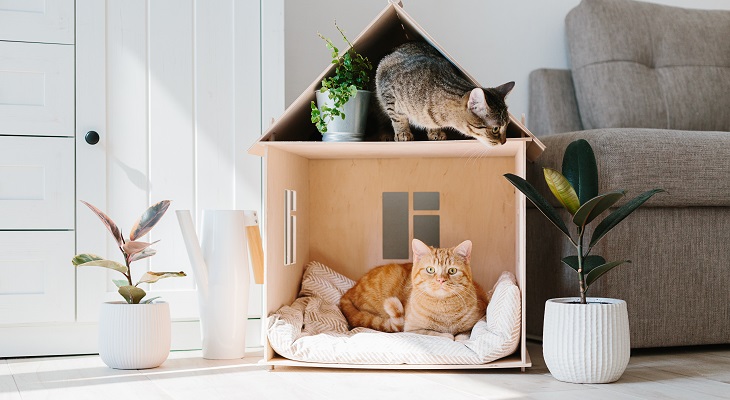Pets can be family, comfort and company to their owners, so it’s no wonder that renting with pets is such a widely discussed topic within the housing market. If you're curious about whether landlords can refuse pets, you're in good company. Here is everything you need to know about renting with pets:
The Renters Reform Bill
• The bill was introduced to parliament on 17 May 2023 and aims to deliver a fair, secure and high-quality rented sector for tenants and landlords alike.
• It has a long way to go before becoming law and is most likely to change and improve its proposals as it passes through the various stages of Parliament and the House of Lords.
• In the context of renting with pets, the Renters Reform Bill will allow landlords to stipulate insurance that caters to potential pet-inflicted damage. Consequently, tenants will need to address and rectify any complications arising from their pets.
The rental reform bill proposes the following reforms regarding renting with pets:
The Dogs and Domestic Animals Act
• Blanket bans on pets living with tenants are to be outlawed.
• Certification of the person responsible for the pet.
• Dogs must be microchipped and vaccinated.
• Dogs must also respond to commands.
Landlords can refuse your pet if:
• You don’t have a vet’s certificate for your pet.
• You are unable to take care of your pet.
• The welfare of the animal is threatened by keeping it on the property.
• If your animal is a nuisance or causes danger to others.
• Your landlord holds a certificate of exemption.
Things to look out for when renting with pets
The main reason behind many landlords being reluctant to accept pets into their property is the heightened risk of damage. If you are looking to rent with pets, you need to be aware of the potential damage to property, which you will be responsible for. This can include damage to the skirting boards, doors and furniture, stained carpets, damage to electrical cables and damage to the garden.
These issues are mostly avoidable, so make sure you pet-proof the property, invest in pet training and clean up any accidents immediately to avoid long-term damage. It may be worth purchasing rugs and throws to avoid muddy paws on furniture and flooring, and if your pet is prone to shedding, invest in a pet hair vacuum cleaner to ensure you keep on top of it.
Take good care of your furry friend - buy a scratching post for cats to keep them away from skirting boards and make sure your dog has chew toys on hand, particularly when teething.
Proper care for your animal will prevent sickness and therefore damage to the property. You can ensure they are happy and healthy by:
• Taking them on regular walks or letting them outside
• If your pet will be alone in the property for hours at a time, make sure you have a trusted person available to check on your them while you aren’t around
• Invest in microchipping, de-worming, de-fleaing, and vaccinations
Renting with pets can be a hugely enjoyable experience, but it is important that as a pet owner, you act responsibly.


